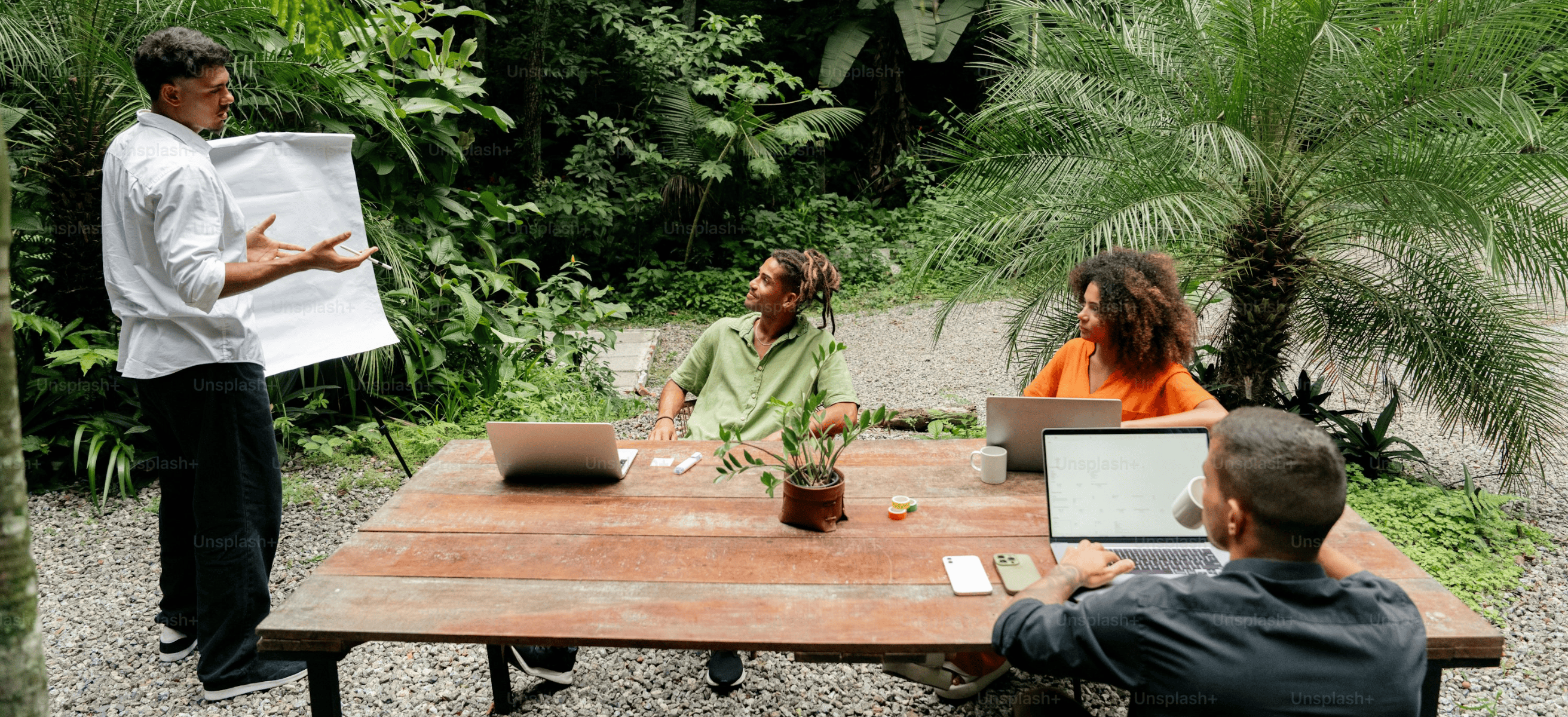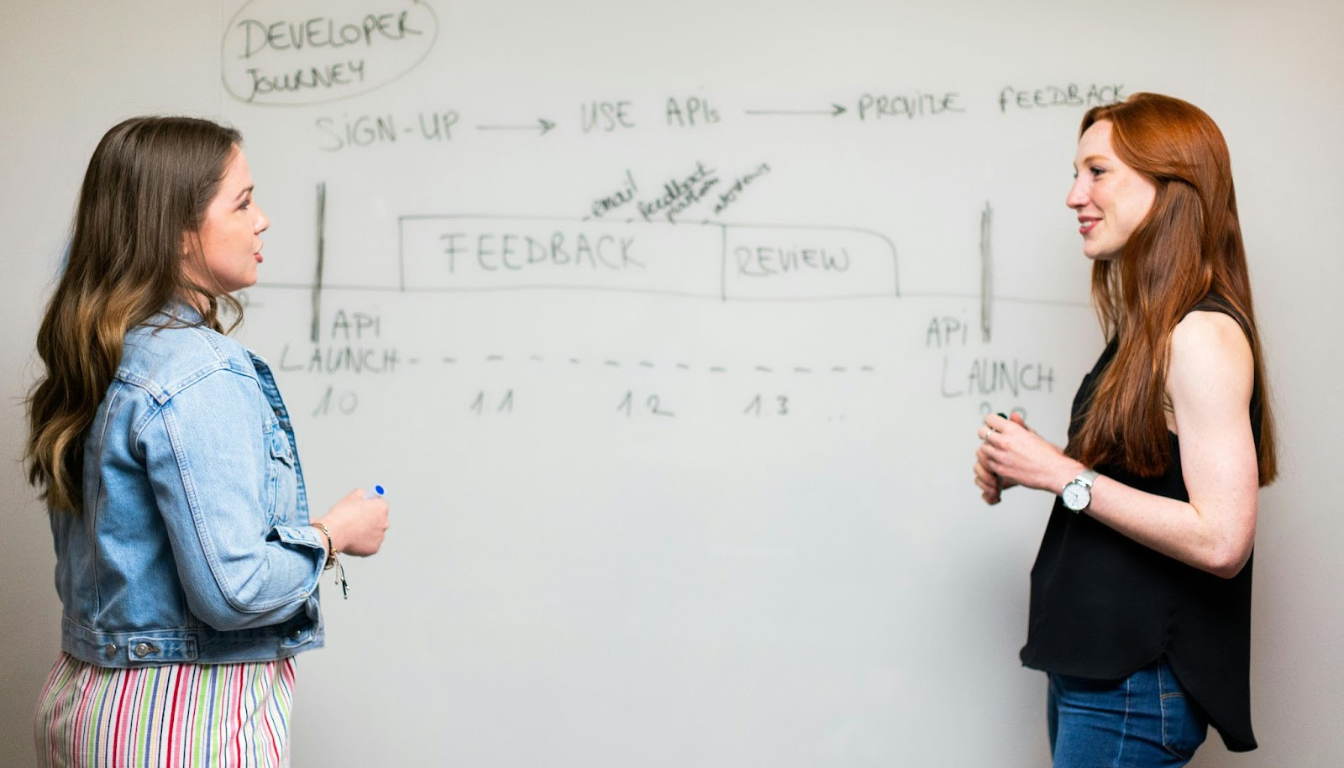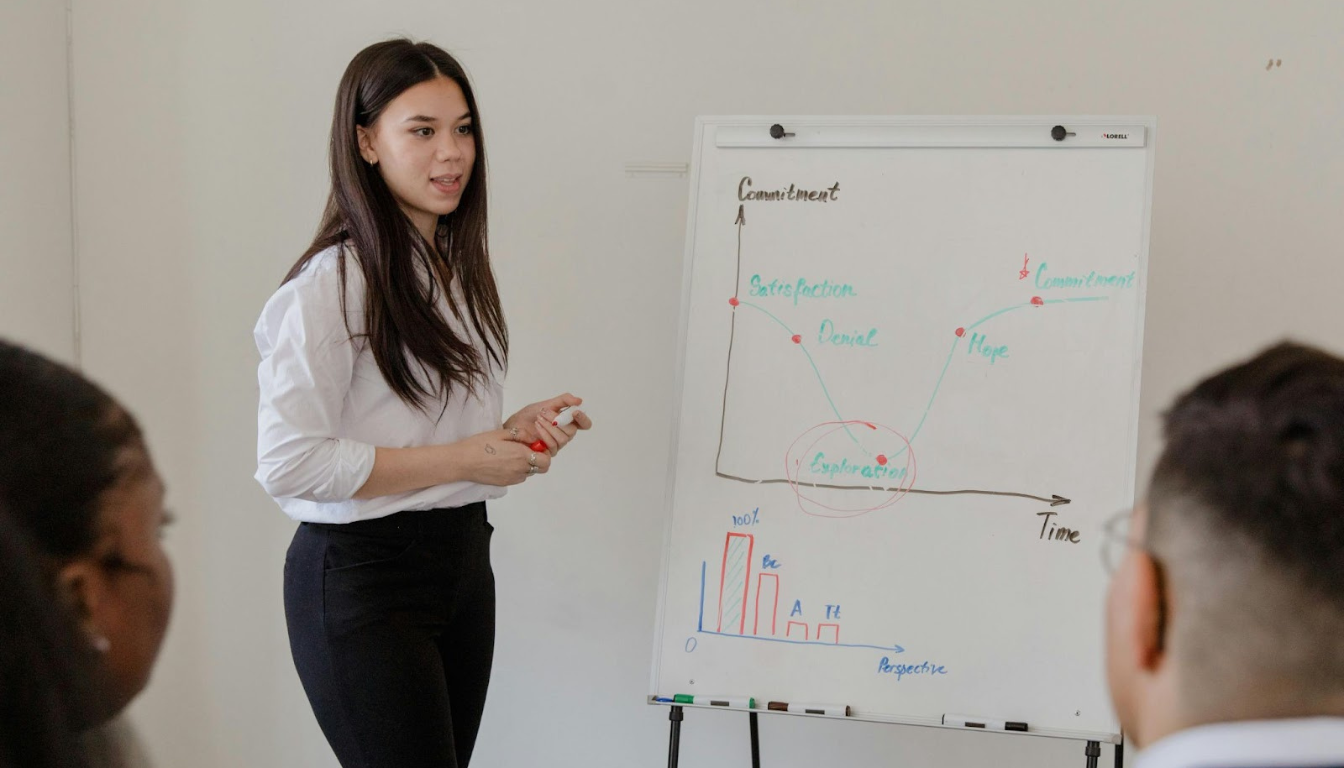Corporate Retreat Feedback Tips: Best Practices, Questions & Examples

Need to improve your corporate retreats? Gathering corporate retreat feedback is the key. This article will guide you through best practices, essential questions to ask, and practical examples.
Key Takeaways
- Gathering feedback from corporate retreats is crucial for measuring attendee satisfaction and improving future events.
- Effective post-event surveys should include a mix of question types, such as rating scales, open-ended, and multiple-choice questions, to capture comprehensive feedback.
- Timely distribution of surveys, utilizing multiple channels for outreach, and keeping surveys short can significantly enhance response rates and the quality of feedback collected.
Importance of Gathering Corporate Retreat Feedback

Gathering feedback from corporate retreats is a vital part of the event planning process, crucial for assessing attendee satisfaction and determining if the event met their expectations. This process helps measure the overall success by aligning with what attendees anticipated, especially when they can attend the event virtually.
Gathering feedback shows attendees that their opinions matter, significantly enhancing their experience and engagement. When participants feel heard, they are more likely to provide constructive feedback and negative feedback, helping improve future events. This data is invaluable for refining approaches and ensuring each retreat is better than the last.
Feedback offers surprising insights into various aspects of the event, such as session effectiveness, venue quality, and overall logistics. Knowing what worked and what didn’t allow for invaluable insight into informed decisions for future retreats. More data from event feedback leads to greater insights and a better understanding of attendee experiences.
Additionally, feedback helps set realistic benchmarks for measuring success. Understanding attendee expectations beforehand allows prioritizing features that matter most to them. This proactive approach ensures the event meets your expectations and is perceived as valuable, enhancing overall satisfaction.
Key Objectives of Corporate Retreat Feedback
The primary objective of post-event surveys is to gather valuable feedback on attendees’ experiences and sentiments. This feedback is crucial for analyzing what worked well and what needs improvement, ensuring future events are even more event success and engaging. Additionally, effective pre-event surveys, send post event surveys, and post event communications play a vital role in this process.
A key objective is to understand attendee satisfaction. Insights from survey questions provide feedback on aspects like the event venue, speakers, food, and activities, helping to gather information on pain points and successful elements to replicate in future events on the event website.
Another objective is to gather constructive feedback that leads to actionable changes. This involves:
- Asking specific questions about experiences to identify areas needing improvement and necessary adjustments.
- Enhancing future events based on the feedback.
- Showing attendees that their opinions are valued, which fosters community and loyalty.
Types of Corporate Retreat Survey Questions
An effective post-event survey uses a mix of question types to gather comprehensive feedback. Incorporating various survey questions keeps respondents engaged and ensures a thorough understanding of their experiences.
Next, we’ll explore the specifics of rating scale questions, open-ended questions, and multiple-choice questions, each offering unique benefits for feedback collection.
Rating Scale Questions
Rating scale questions are a staple in post-event surveys because they quantify attendee experiences and satisfaction. These questions measure opinions quantitatively, making it easier to analyze satisfaction levels across different aspects of the retreat.
Various types of rating scales can be used, such as:
- Numbered scales (1-10)
- Worded scales (“Very satisfied” to “Very unsatisfied”)
- Likert scale questions, which rank satisfaction from one extreme to another, offering deeper insights
- Slider questions, an innovative format allowing respondents to indicate their satisfaction level on a sliding scale, which can be more engaging and precise.
Examples of rating scale questions include asking attendees to rate their overall experience at the event or specific aspects like date, location, speakers, and catering. NPS (Net Promoter Score) questions are valuable for measuring satisfaction with networking opportunities and other event characteristics. These questions simplify data collection and provide a clear picture of what worked and what needs improvement.
Open-Ended Questions
Open-ended questions gather in-depth feedback that goes beyond numerical ratings. These questions allow participants to provide detailed responses, offering valuable insights into their experiences and perspectives. This open ended question qualitative data is crucial for understanding the nuances of attendee experiences that closed-ended questions may not capture.
Including open-ended questions helps identify specific areas needing improvement and gather suggestions for future events. Asking attendees, “What features did you like best about the event experience?” can yield insights for future planning. Questions like “Is there anything we could have done to make your event experience easier or more convenient?” can highlight pain points needing addressing.
Responses from open-ended questions are invaluable for refining event strategy and ensuring no attendee concern is overlooked. Applying this feedback can lead to more successful events by helping plan and execute corporate retreats that better meet attendee needs and expectations.
Multiple-Choice Questions
Multiple-choice questions are effective for gathering specific information quickly and efficiently. These questions provide predefined response options, making it easier for attendees to answer and for organizers to analyze the data. This format is particularly useful for gathering quantitative data that can be easily compared and analyzed.
An example of a multiple-choice question could be, “Are you planning to return to next year’s event?”. This type of question helps gauge attendee interest in future events and provides insights into overall satisfaction.
Simplifying the response process, multiple-choice questions enhance data collection clarity and ensure specific information is gathered efficiently.
Examples of Effective Corporate Retreat Survey Questions

Crafting effective post-event survey questions requires careful consideration of the information needed. A straightforward yet powerful event survey question is, “How would you rate your overall experience at the event?” This question provides a broad overview of attendee satisfaction and can be used as a benchmark for future events, along with general event survey questions and pre-event survey questions, ensuring a successful event.
Networking, especially in hybrid setups, is another important aspect. Asking, “Did you find networking effective in this hybrid events setup?” offers valuable insights into the success of networking opportunities. Understanding how attendees navigated the event and whether they faced challenges is also crucial. Questions like, “What aspects should be considered for event navigation at the next hybrid event?” can help improve the flow and accessibility of future events.
Tech support significantly impacts the attendee experience. Asking, “What can attendees provide insights about regarding tech support during the event?” helps identify technical issues needing addressing.
Understanding attendee preferences for food and beverages enhances the overall experience. Questions like, “What can be identified by asking about attendees’ food preferences?” help tailor catering menu options to meet expectations.
How to Conduct Post-Retreat Surveys

Conducting post-retreat surveys effectively involves more than crafting the right questions; it requires strategic planning in timing and distribution methods. Using multiple channels and prompt timing significantly impact response rate and feedback quality.
Next, we’ll explore best practices for timing and utilizing multiple channels to gather feedback to gather the most comprehensive feedback possible.
Timing for Sending Surveys
Timing is crucial for sending out post-event surveys. To maximize accurate recall, it’s best to send the survey within one business day of the event. This prompt approach ensures event details are fresh in attendees’ minds, leading to more accurate and insightful responses.
Following up with non-respondents is also important. Here are some key points to consider:
- A few days after the initial outreach, send one or two reminders to those who haven’t completed the survey.
- This gentle nudge can significantly boost response rates, ensuring feedback from a broader audience.
- Avoid sending surveys more than a month after the event, as delayed data may not be helpful.
Creating a sense of urgency with a countdown for survey deadlines encourages quicker responses. Combined with personalized survey invitations, this approach significantly enhances response rates and feedback quality.
Using Multiple Channels
Utilizing various distribution methods is essential for reaching a wider target audience and gathering diverse feedback. Effective channels include:
- Social media
- Event apps
Leveraging multiple platforms increases the chances of reaching all participants, regardless of their preferred communication method.
Manual sharing of survey links can effectively encourage participation. For example, having iPads at the venue for in person attendees to fill out surveys in person immediately after sessions can yield high response rates during in-person events and enhance survey creation efforts.
A multi-channel approach to collect feedback ensures all participants are engaged effectively, gathering comprehensive data from your virtual event.
Analyzing and Utilizing Feedback

Analyzing feedback from post-event surveys is vital for improving future corporate retreats. Establishing specific goals prior to the retreat allows better measurement of success post-event. Clear objectives for your survey focus data analysis on specific insights like satisfaction or improvement suggestions.
Combining both quantitative and qualitative data enhances the understanding of attendee experiences, providing a richer feedback context. The process includes:
- Organizing survey data by removing duplicates and categorizing responses to aid thorough analysis.
- Identifying common themes and areas needing improvement.
- Using these insights to make informed decisions for future events.
Feedback helps determine the return on investment (ROI) for the retreat by comparing costs with benefits gained in productivity and morale. One-on-one discussions with team members provide deeper insights into the retreat’s impact. Ensuring confidentiality can lead to more honest feedback from respondents, making the data invaluable.
Best Practices for Maximizing Survey Responses
Maximizing survey results responses is crucial for gathering comprehensive feedback. One effective strategy is keeping the survey short, as long surveys can deter respondents. Offering incentives like e-books, discounts, or entries to future events can also boost participation, making the process more appealing and rewarding for attendees.
Using straightforward language and making surveys visually engaging enhances approachability and user experience. Key strategies for increasing response rates include:
- Providing clear instructions
- Choosing the right timing for distribution
- Employing various channels, as previously mentioned, to successfully present a broader reach and higher participation.
Personalizing survey invitations and creating a sense of urgency with countdowns further encourage prompt survey completion. Implementing these best practices maximizes survey responses and gathers valuable feedback needed to improve future corporate events.
Leveraging Feedback for Future Events

Leveraging feedback from post-event surveys is essential for planning successful future events. Collecting feedback after the retreat helps in identifying opportunities for improvement and creating a list of action items for the next event. This ensures continuous improvement and enhances the overall experience for attendees.
Making changes based on attendee feedback demonstrates that their opinions are valued, fostering loyalty and encouraging further input. Insights from event survey questions can enhance various aspects of future events, such as:
- Registration processes
- Venue choice
- Staffing
- Catering
Engaging attendees about changes made from their feedback enhances community feeling and shows that their input is making a tangible difference.
Long-term planning with feedback insights allows event organizers to stay ahead of trends and continuously improve. Every retreat should end with clear data to support continuous improvement and team satisfaction. By leveraging feedback effectively, you can ensure that each event is better than the last, leading to successful and memorable corporate retreats while planning future events.
Summary
Gathering corporate retreat feedback is an indispensable part of event planning and execution. By utilizing post-event surveys, you can measure attendee satisfaction, identify areas for improvement, and gather valuable insights that will help you plan more successful events in the future. Effective feedback collection involves a mix of rating scale questions, open-ended questions, and multiple-choice questions, each contributing uniquely to a comprehensive understanding of the attendee experience.
Timing and the use of multiple channels are crucial for maximizing survey responses. Sending surveys promptly and following up with reminders ensures higher participation rates, while a multi-channel approach ensures you reach a diverse audience. Analyzing the gathered feedback by combining quantitative and qualitative data helps in identifying common themes and areas needing improvement, ultimately guiding future event planning. Platforms like Offsite can streamline this process by centralizing communication, surveys, and event data, making it easier to capture actionable insights.
By leveraging the feedback collected, you can make informed decisions that enhance future events, demonstrating to attendees that their opinions are valued. This continuous improvement fosters loyalty and ensures that each corporate retreat is more successful than the last. Implementing these best practices will not only improve attendee experience but also contribute to the overall success of your corporate events.
FAQs
- When is the best time to send post-event surveys?
To ensure accurate recall of experiences, it is best to send post-event surveys within one business day of the event. This prompt approach helps gather more reliable feedback.
- What types of questions should be included in a post-event survey?
To gather comprehensive feedback, include a mix of rating scale, open-ended, and multiple-choice questions in your post-event survey. This approach ensures you capture diverse insights from attendees.
- How can I maximize survey response rates?
To maximize survey response rates, ensure your surveys are concise, use clear language, and provide incentives for participation. Additionally, enhance visual appeal and send reminders to encourage completion.
- Why is it important to use multiple channels for survey distribution?
It's crucial to use multiple channels for survey distribution to reach a broader audience and gather diverse feedback, enhancing the quality of your insights. This approach maximizes participation and improves the overall effectiveness of the survey.
You may also like
Unique spaces for your next offsite
Find distinctive venues for your upcoming corporate retreat.
Stay Updated with Our Insights
Get exclusive content and valuable updates directly to you.







